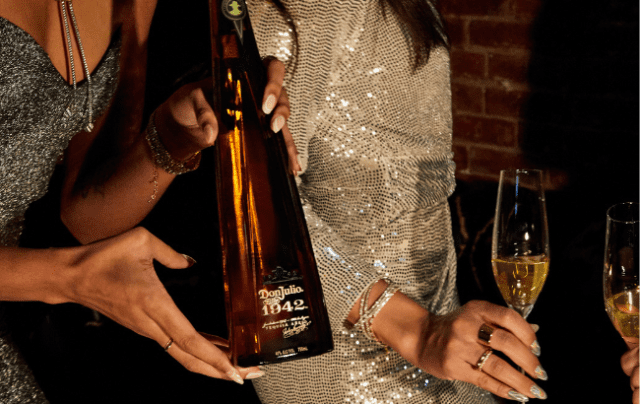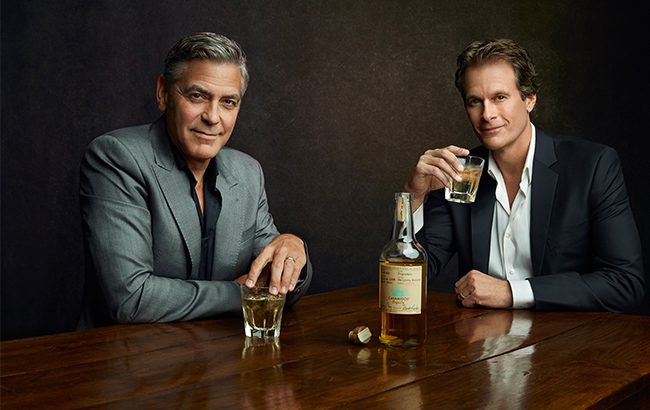Diageo downplays poor spirits sales
Drinks giant Diageo has blamed its sales drop in Latin America on a “worse than expected” consumer environment and high inventory levels.

At a media briefing in London on Tuesday (30 January), after the release of its results for the six months to December 2023, company executives told reporters that the disappointing 0.6% drop in sales were “dictated by consumer environment” and that they expected to see a “gradual improvement” in the second half versus the first half.
In terms of what went wrong, Diageo pointed towards inventory replenishment in North America, the “volatile” market in the Latin America and Caribbean (LAC) region and an underestimation of the current consumer environment.
Diageo’s sales in LAC saw a drastic 23% drop, which CEO Debra Crew attributes to the region being a “volatile” market. Spirits sales fell by 25% in the region.
Crew said that the “Covid-19 supercycle”, where the region saw “extraordinary growth”, and the company underestimating the consumer environment were products of this.
She said: “If you step back this is a market that has been demonstrating really extraordinary growth, particularly for the pandemic, that Covid supercycle, we had significant volumes, significant premiumisation. Also gaining share. We’ve gained distribution points.
“We started to see at the end of the last calendar year that Latin America can be quite volatile. We literally saw it was a steep double-digit decline following what was going up. The downturn there was quite steep. We did identify at the end of the fiscal that we had extra inventory.
Crew used Brazil as an example: “We had Scotch coming in from Scotland, in anticipation of summer and carnival. It was going to be big and then it wasn’t. We identified that we had a lot of inventory at the end of fiscal last year. The team really thought they could move through it in the first quarter. They really underestimated the inventory sitting there.
“In the consumer environment, there we’re two things we underestimated: That it continued to be worse than what we were expecting, but also, below the direct customers in between there and the retailers, you have in these markets, multiple layers and some of these you can’t see as well. We really underestimated what inventory is sitting there. And so that’s what came to life.
“You have to remember this was a small market for us but a few years ago, it really was material to Diageo around the rest of the world, but we didn’t do good enough.
“We are committed to getting back to the standard we would want in that market. We’re looking to reduce inventories back to levels that are appropriate to that market.”
Disappointing Scotch performance in the US
Globally, Scotch sales plunged by 10%, Tequila then followed with a 6% decline, and vodka, rum and gin each saw a 5% drop.
For Scotch in the US, where single malts were down by 27% and Johnnie Walker fell by 13%, Crew said the company was lacking in replenishment for high-priced Scotch (more than US$100) last year.
She said to reporters: “During Covid-19 people didn’t have a lot of other things to spend money on and so there was quite a bit of what we call ‘aspirational consumption’ – that is really working its way out and you’re seeing a normal level of growth.”
She also noted that Diageo believes in premiumisation and that is what is growing in the US market: “If you look at premium-and-below, that is actually what is in decline. And that’s the whole industry, not just Scotch. Consumers are being smart about how they shop, they are being very choiceful.
“We are still seeing a lot of normalisation activity and there are pockets of downtrading. That’s what we’re navigating through. That’s the power of a broad portfolio, we can pivot to anywhere.”

Addressing Tequila declines
When The Spirits Business asked about its dropping Tequila performance in the US, in particular with Casamigos, which saw a drastic 13% decrease in sales, chief financial officer (CFO) of Diageo, Lavanya Chandrashekar, said Casamigos actually had positive growth from consumer off-take in the US.
Chandrashekar said: “For years Casamigos had a 50% growth rate and we were having a hard time keeping up with supply. Last year, we finally got enough supply. And so we have this filling of the pipeline and we are lapping that this year. That’s why what’s in our books looks like a decline.”
Chandrashekar added that both Casamigos and Don Julio were in “good health”, despite the latter falling by 1%.
When asked about why Don Julio’s volumes are performing more strongly by sales by value in the market and if she was concerned whether Don Julio is priced too cheaply, Chandrashekar explained that it was a “point in time”.
“If you look at what’s happening from a premiumisation perspective – talking about the US market – it’s the super-premium-and-above that’s been growing, while premium-and-below is in decline,” she said. “The extent of that growth for super-premium-and-above has come down.
“So when the category was growing at around 70%, the super-premium-and-above was growing strong. Now that the Tequila category has come down to low single digits, super-premium-and-above’s growth rate has also come down.
“Inherently, consumers are still very interested in drinking better. Everything has just been muted, but premiumisation is still very much in place in the US.”
As for opportunities for growth in the category, Diageo said it was taking Tequila around the world and that it would “see how that would play out”.
Crew said that in Asia most of the growth in Tequila was around Don Julio 1942: “Vietnam, for example, is taking this on in a luxury market and we’re not sure what people know quite what to do with it. We’ve tied in with various DJs and it really has resonated with pop culture there.”
She added: “That’s very different from if you were hanging around Southern Europe over the summer where you couldn’t trip over a Paloma cocktail.”
Diageo’s LAC president previously said the Paloma would be key to driving growth in Europe for its Tequila portfolio.
“In Great Britain, we’re hearing in high-end bars that [Tequila is] outselling vodka and gin,” Crew added. “It’s going to play out in different ways, not like it will in the US. We’re following the consumer and amplifying it where it seems to catch.”
On the whole Diageo’s CEO said the company was “active” in regards to new mergers and acquisitions within America, but also pointed out that there is “a lot we can do with our organic business”.
Related news
